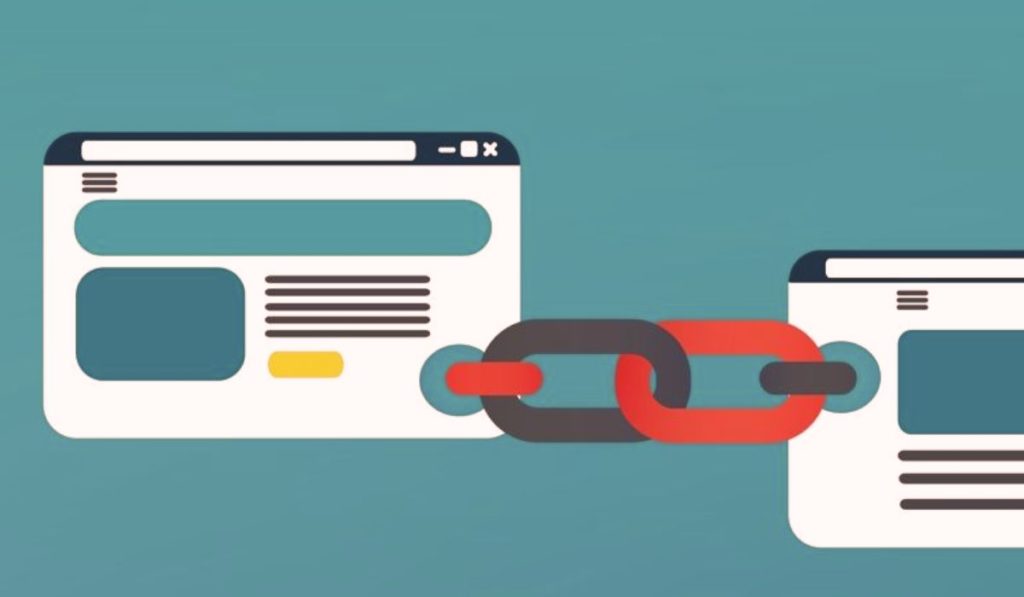In the ever-evolving world of Search Engine Optimization (SEO), Resource Page Link Building emerges as a pivotal strategy for enhancing a website’s visibility and authority. This technique revolves around acquiring backlinks from webpages specifically designed to provide visitors with a collection of useful links and resources. These resource pages are typically curated by organizations, educational institutions, or industry experts, and are intended to offer valuable information to their audience.
Resource Page Link Building is more than just a method for gaining backlinks; it’s a strategic approach to position your website within a network of quality, relevant resources. This not only drives targeted traffic to your site but also significantly boosts your site’s credibility in the eyes of search engines like Google. By being listed on a resource page, your website is implicitly endorsed as a valuable source of information, which can positively impact your search engine rankings.
The importance of this strategy in the broader SEO landscape cannot be overstated. In a digital world where the quality and relevance of backlinks are increasingly scrutinized, securing a spot on a well-regarded resource page can set your website apart from competitors. It’s a testament to the quality of your content and its relevance to your target audience.
In this comprehensive guide, we will delve into the intricacies of Resource Page Link Building. We’ll explore its fundamental principles, why it’s crucial for a robust SEO strategy, and how to effectively identify and leverage these opportunities. Additionally, we’ll provide insights into crafting a successful outreach strategy, best practices to follow, and common pitfalls to avoid. Whether you’re an SEO novice or a seasoned professional, this article aims to equip you with the knowledge and tools to harness the power of resource page link building and elevate your website’s SEO performance.

The Basics of Resource Page Link Building
Resource Page Link Building is a nuanced and strategic approach within the broader scope of SEO practices, focusing on acquiring backlinks from dedicated resource pages. Understanding its fundamentals is crucial for enhancing their website’s SEO performance.
Definition and Explanation of Resource Pages
Resource pages are specific web pages created to provide visitors with a curated list of links and resources. These pages are typically found on educational, organizational, or industry-specific websites and are designed to offer comprehensive resources on a particular topic. The content on these pages is often a compilation of external links that the page curator deems valuable, informative, and relevant to their audience. The nature of these resources can vary widely, ranging from informative articles, blog posts, guides, to tools and multimedia content.
Distinguishing Resource Page Link Building from Other Strategies
Resource Page Link Building is distinct from other link building strategies in several key ways:
Targeted Nature: Unlike generic link building, which might focus on many websites, resource page link building is highly targeted. It specifically aims at pages that are designed to list helpful resources.
Quality over Quantity: This strategy prioritizes the quality of backlinks over their quantity. A link from a reputable resource page can be more valuable than multiple links from lesser-known or lower-quality sites.
Relevance and Context: Links from resource pages are contextually relevant and are placed amidst other valuable resources, which can enhance the perceived value of your content.
Long-term Value: Resource pages are often long-standing elements of a website, meaning that a backlink from such a page can provide sustained value over time.
The Role of Resource Pages in SEO
Resource pages play a significant role in SEO for several reasons:
Enhancing Domain Authority: Links from reputable resource pages signal to search engines that your website is a credible and authoritative source in your niche.
Driving Targeted Traffic: Being listed on a resource page puts your site in front of an audience actively seeking information in your area of expertise.
Improving Search Rankings: High-quality backlinks are a key ranking factor in search engine algorithms. Links from resource pages can significantly boost your site’s visibility in search results.
Building Relationships: Engaging in resource page link building often involves reaching out and connecting with influencers and authoritative figures in your industry, which can lead to further networking and collaboration opportunities.
In summary, Resource Page Link Building is a refined approach within SEO that focuses on acquiring high-quality, relevant backlinks from specialized resource pages. Its emphasis on quality, relevance, and long-term value sets it apart from other link building strategies and underscores its importance in a successful SEO campaign.
The Importance of Resource Page Link Building
Resource Page Link Building is a cornerstone strategy in SEO, offering many benefits that can significantly elevate a website’s online presence. This approach not only enhances SEO but also contributes to a website’s overall health and visibility.
Benefits for SEO and website visibility
- Boost in Organic Search Rankings: One of the most direct benefits of resource page link building is improving organic search rankings. Search engines like Google use backlinks as a key metric to gauge the relevance and authority of a website. A link from a high-quality resource page is a strong endorsement, signaling that your content is valuable and worth ranking higher in search results.
- Enhanced Credibility and Trust: Being featured on a reputable resource page enhances the credibility of your website. Users and search engines alike view these endorsements as a mark of trust and quality, which can lead to increased user engagement and lower bounce rates.
- Greater Visibility and Brand Awareness: Appearing on resource pages, especially those within your niche, increase your visibility to your target audience. This exposure is invaluable for brand awareness and can lead to higher recognition in your industry.
Impact on Domain Authority and Website Traffic
Strengthening Domain Authority: Domain Authority (DA) is a metric that predicts how well a website will rank on search engine result pages (SERPs). High-quality backlinks from resource pages can significantly boost your DA, making your site more likely to rank well.
Driving Targeted Traffic: Links on resource pages often result in increased, targeted traffic. Visitors to these pages actively seek information or resources in your niche, making them more likely to engage with your content meaningfully.
Case Studies or Examples of Successful Resource Page Link Building
Example 1: A health and wellness website experienced a 50% increase in organic traffic after securing backlinks from multiple authoritative health education resource pages. This improved their search rankings and increased their user engagement metrics.
Example 2: A small tech startup focused on resource page link building as part of their SEO strategy. Within six months, they saw a 30% increase in their DA and a significant boost in referral traffic, leading to higher lead generation and sales conversions.
Example 3: An educational blog collaborated with various universities to be included in their resource pages. This strategy led to a 70% increase in organic traffic and a substantial rise in their online authority within the educational sector.
In conclusion, Resource Page Link Building is an invaluable strategy for enhancing SEO, increasing website visibility, improving domain authority, and driving targeted traffic. The success stories in various industries underscore its effectiveness and the potential it holds for any website looking to strengthen its online presence.
Identifying Potential Resource Pages

Identifying the right resource pages is crucial for a successful Resource Page link-building campaign. This process involves finding pages that are not only relevant to your niche but also hold the potential to enhance your website’s SEO and credibility.
Finding Relevant Resource Pages in Your Niche
Utilize Search Engine Queries: Use specific search engine queries to find resource pages. Use keywords related to your niche combined with terms like “resources,” “useful links,” or “helpful resources.” For example, if your niche is digital marketing, you might search for “digital marketing + resources” or “digital marketing + useful links.”
Explore Industry Forums and Blogs: Industry-specific forums and blogs often discuss and share resource pages. Participating in these communities can provide insights into where your peers are getting their backlinks.
Leverage Competitor Backlinks: Analyze where your competitors are getting their backlinks. Tools like Ahrefs or SEMrush can reveal the resource pages linking to your competitors, offering a roadmap of potential opportunities for your site.
Tools and Techniques for Identifying Potential Link-Building Opportunities
SEO Tools: Utilize SEO tools like Moz, Ahrefs, or Majestic to uncover link-building opportunities. These tools can help you find resource pages that link to similar websites in your niche.
Google Alerts: Set up Google Alerts for key phrases related to your niche. This can help you stay updated on new resource pages as Google indexes them.
Social Media Monitoring: Platforms like Twitter and LinkedIn can be goldmines for finding resource pages. Monitor relevant hashtags or industry discussions to uncover linking opportunities.
Evaluating the Quality and Relevance of Resource Pages
Check Domain Authority: Use tools to check the domain authority of the resource page. A higher domain authority generally indicates a more valuable backlink.
Relevance to Your Niche: Ensure the resource page is closely related to your niche. The more relevant the page, the more valuable the backlink will be for your SEO.
Quality of Other Links: Examine the quality of other links on the resource page. A page that links to high-quality, authoritative sites is more valuable than one with low-quality links.
Content Quality: Assess the overall quality of content on the resource page. Well-maintained, up-to-date, and informative pages will benefit your SEO efforts more.
Traffic and Engagement Metrics: Gauge the traffic and engagement levels of the resource page. Pages with higher traffic and engagement will likely drive more visitors to your site.
In summary, identifying the right resource pages for link building requires a combination of smart search strategies, SEO tools, and a keen eye for quality and relevance. By focusing on these aspects, you can effectively pinpoint resource pages that will provide the most significant benefit to your website’s SEO and overall online authority.
Crafting Your Outreach Strategy
Successful resource page link building hinges on identifying the right opportunities and effectively reaching out to webmasters and site owners. A well-crafted outreach strategy is essential for securing those valuable backlinks.
Approaching Webmasters for Link Placement
Personalized Contact: Begin by identifying the right person to contact. This might be the webmaster, site owner, or content editor. Use LinkedIn or the website’s contact information to find the most appropriate contact person.
Understand Their Needs: Understand the website’s content and audience before reaching out. This knowledge will help you tailor your approach and demonstrate how your content adds value to their resource page.
Respectful and Professional Tone: When you make contact, be respectful and professional. Acknowledge their work and express genuine appreciation for their resource page.
Crafting Compelling Outreach Emails
Attention-Grabbing Subject Line: Your email should be concise and compelling. It should indicate the value you’re offering, like “Suggestion for Your Resource Page on [Topic].”
Personalization is Key: Address the recipient by name and mention specific details about their website or resource page to show that your email isn’t generic.
Clearly State Your Purpose: Be upfront about why you’re reaching out. Introduce yourself, your website, and explain why your content would be a valuable addition to their resource page.
Highlight the Benefits: Explain how your content or resource will benefit their audience. Ensure that you’re offering something that enhances their page’s value.
Keep it Short and Sweet: Your email should be concise and to the point. Busy webmasters might not have time to read lengthy emails, so make your case clearly and quickly.
Building Relationships with Website Owners and Content Creators
Offer Value First: Consider what you can offer them before asking for a link. This could be sharing their content, offering feedback on their site, or even collaborating on content.
Follow-Up Respectfully: If you don’t hear back, sending a polite follow-up email is appropriate. However, respect their decision if they’re not interested.
Maintain the Relationship: Even after securing a link, maintain the relationship. Share their content, engage with them on social media, and keep the lines of communication open for future collaboration.
Be Genuine and Supportive: Genuine interactions and support go a long way in building lasting relationships. Show interest in their work and offer help where you can.
In summary, crafting an effective outreach strategy for resource page link building involves personalized and respectful communication, clear and concise messaging, and a focus on building mutually beneficial relationships. By approaching webmasters with a well-thought-out strategy, you increase your chances of securing valuable backlinks and fostering ongoing collaborations.
Best Practices for Resource Page Link Building
Effective resource page link building is not just about securing a spot on a resource page; it’s also about creating and maintaining content that adds real value. Adhering to best practices ensures that your efforts yield sustainable, long-term benefits.
Creating Valuable Content for Resource Pages
Understand the Audience: Know the audience of your target resource pages. Your content should address their interests, needs, and pain points.
High-Quality, Informative Content: Ensure your content is well-researched, informative, and offers unique insights. Resource pages are more likely to link to authoritative and engaging content.
Comprehensive and Relevant: Your content should comprehensively cover the topic and be relevant to the theme of the resource page. It should complement the other resources listed, filling any gaps or offering a new perspective.
Visually Appealing and Accessible: Make your content visually appealing and easy to navigate. Use images, infographics, and a user-friendly layout to enhance readability and engagement.
Aligning Content with Resource Page’s Theme and Audience
Tailor Content to Fit the Page: Customize your content to align with the specific focus of the resource page. This might involve tweaking your existing content or creating something new.
Stay Updated on Industry Trends: Keep your content up-to-date with current trends and developments in your industry. This ensures continued relevance and value to the resource page.
Diversity of Content Formats: Consider different formats like blog posts, guides, infographics, or videos. Different resource pages prefer different types of content.
Tips for Maintaining and Updating Links
Regularly Monitor Your Backlinks: Use tools to monitor your backlinks. This helps in identifying broken links or if your content has been removed from a resource page.
Update Your Content Regularly: Keep your content fresh and updated. This helps maintain your current backlinks and makes your content more attractive for new resource pages.
Build a Relationship with Webmasters: Maintain a good relationship with webmasters. If your content is updated or changed, inform them so they can update the links.
Respond to Changes in Resource Pages: If a resource page is redesigned or changes its focus, adapt your content accordingly to ensure it remains relevant.
Be Proactive in Replacing Lost Links: Proactively find a replacement if a link is lost. Look for other resource pages where your updated content could be a fit.
In conclusion, successful resource page link building hinges on creating valuable, relevant content and maintaining the quality and relevance of your backlinks. By following these best practices, you can ensure that your link-building efforts contribute positively to your website’s long-term SEO strategy.
Common Pitfalls and How to Avoid Them
Resource page link building, while effective, comes with potential pitfalls. Being aware of these and knowing how to avoid them is crucial for a successful strategy.
Mistakes to Avoid in Resource Page Link Building
Overlooking Relevance: One common mistake is pursuing links from resource pages irrelevant to your niche. Always prioritize relevance to ensure the link adds value to your SEO efforts.
Ignoring the Quality of the Resource Page: Not all resource pages are created equal. Targeting low-quality or spammy pages can harm your website’s reputation. Focus on pages with high authority and relevance.
Spammy Outreach Practices: Bombarding webmasters with generic, impersonal emails can lead to your messages being ignored or marked as spam. Personalize your outreach and be respectful in your communication.
Ethical Considerations and Adhering to SEO Best Practices
Avoiding Manipulative Tactics: Steer clear of black-hat SEO tactics like buying links or participating in link schemes. These practices can lead to penalties from search engines.
Transparency and Honesty: Be transparent and honest in your outreach. Misrepresenting your content or intentions can damage relationships and your brand’s reputation.
Focusing on Mutual Benefit: Approach resource page link building as an opportunity for mutual benefit. Your content should genuinely add value to the resource page and its audience.
By avoiding these pitfalls and adhering to ethical SEO practices, you can ensure that your resource page link-building strategy is effective and sustainable, leading to long-term benefits for your website’s SEO.
Conclusion
Resource page link building is an invaluable strategy for enhancing your website’s SEO, credibility, and visibility. You can significantly boost your online presence by creating high-quality, relevant content, tailoring it to the right resource pages, and engaging in thoughtful outreach. Remember, focusing on relevance, quality, and building lasting relationships is key.
Use these tips to improve your website and enjoy the long-term benefits of having a strong online presence.

